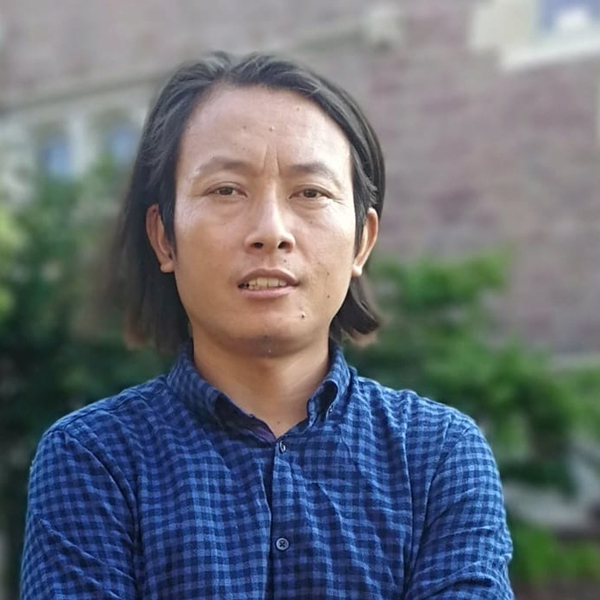Columns
Politics of the Dolpo festival
The violation of the political rights of Dolpo in 2014 is still fresh in the minds of many..jpg&w=900&height=601)
Tashi Tewa
Five years ago, an unforgettably violent event took place on what would be known as 'black day' in the village of Dho-Dolpo in northwestern Nepal. Security officials threw a group of locals in prison saying, 'Go back to your country; this is not your country, Bhotes!' The villagers were tortured so severely one died on the spot while another succumbed to injuries during treatment. Scholars like CK Lal and Deepak Thapa wrote about the brutal act, and Kantipur journalists arrived in Dolpo for the first time to investigate the incident and report it. After the horror and tragedy of that night, that remains fresh in the minds of locals, one wonders about the rationale of hosting the Dolpo Festival in that same village between September 10-14 this year. Many ministers and leaders were to be attending the event, which makes one question how the recalcitrant Bhotes suddenly are considered to be Nepalis.
Let me start by relating how Dolpo, and its cultural community scattered between the present-day northern borders of Mustang and Jumla, got to this point. Following the 2015 earthquake, the Tharuhat and Madhes movements and the Indian blockade, leaders like Prime Minister KP Oli championed development by deepening economic ties with China. Infrastructural development plans were made. The idea was to build roads passing through Dho-Dolpo (currently known as Dolpo Buddha Rural Municipality) and demolish hills to connect various capitalist markets of western and eastern Tibet such as Lassache, Torum, Lhasa and Shigatse. In this plan, the opportunity, and greediness, to extract local resources cannot be overlooked.
After the constitution was promulgated, local elections were held—including polls for the three rural municipalities. For the first time in political history, a few individuals from Dolpo became chairman, vice-president, ward chairperson and members of the local units. Political parties like the erstwhile CPN-UML, now known as the Nepal Communist Party, co-opted all those individuals, including the few independents at the time of the election. The recent declaration of the Nepal Communist Party's new district chapter with these independents as members completed the charade, evoking negligible resistance.
The government proposed to hold festivals to propagandise prosperity even at the annual province-level meeting in Surkhet attended by these representatives. Therefore, it will not be a surprise if the Dolpo festival is seen here as the result of such rhetoric and contradictions. According to the organisers, Deputy Prime Minister and Defence Minister Ishwar Pokhrel, Tourism Minister Yogesh Bhattarai, Karnali State Chief Minister Mahendra Bahadur Shahi, the provincial tourism minister, the director-general of the Roads Department and the head of the Nepal Tourism Board were supposed to have attended the festival. The government was expected to spend Rs2 million to hold the event which will feature discourses, dances of local lamas, sports activities and pilgrimages to publicise Dolpo as a 'virgin' land.
In the past, dances were performed to celebrate the success of some significant social work. Families, neighbours, relatives and other villagers gathered to dance to mark the completion of planting or harvesting, weddings or the birth of a baby. The present festival will be the first to be attended by federal, provincial and district leaders, but what milestone does it signify? The violation of the political rights of Dolpo in 2014 might be a recurring theme here. Despite protests and many days of hunger strike in Kathmandu five years ago, the then home minister Bamdev Gautam defended the security forces and neglected the families of the injured and deceased Dolpo locals, which exposes the vitriolic intent of the government. An investigation of the violence was limited to the district headquarters of Dunai, and no attempts were made to contact the local victims to hear their side of the experience. No report of the investigation has been made public.
Fear and intimidation were employed to suppress any dissent during the elections. A few days before polling day, nearly one hundred young cadres carrying thick sticks appeared, creating a toxic political environment to secure a win for candidates attached to the ruling party. Independent candidates only secured a vote, presumably, after promising to enter the party instantly after the election. Ignoring such dubious tactics and saving oneself at the expense of a healthy democracy became the mantra of both local government staff and security officials.
Nobody from Dolpo has been included in the District Coordination Committees. There is indifference towards any community-level dialogue and programmes about political rights. Special indigenous rights such as the formation of an autonomous state, special autonomous state and protected state as enshrined in the constitution are rarely discussed. The representatives never question chronic structural and politico-economic injustices. As the commodification of cultural festivals spreads, how marginalised communities will be able to secure rights over land, water and forests will remain a pressing issue.
***
What do you think?
Dear reader, we’d like to hear from you. We regularly publish letters to the editor on contemporary issues or direct responses to something the Post has recently published. Please send your letters to [email protected] with "Letter to the Editor" in the subject line. Please include your name, location, and a contact address so one of our editors can reach out to you.




 8.22°C Kathmandu
8.22°C Kathmandu















